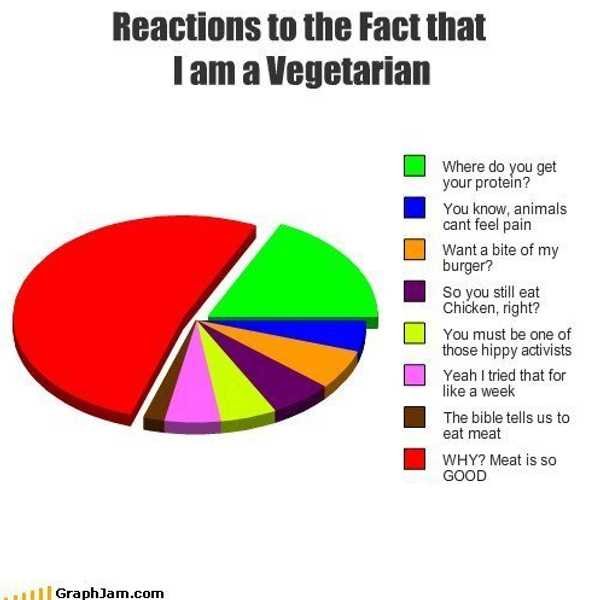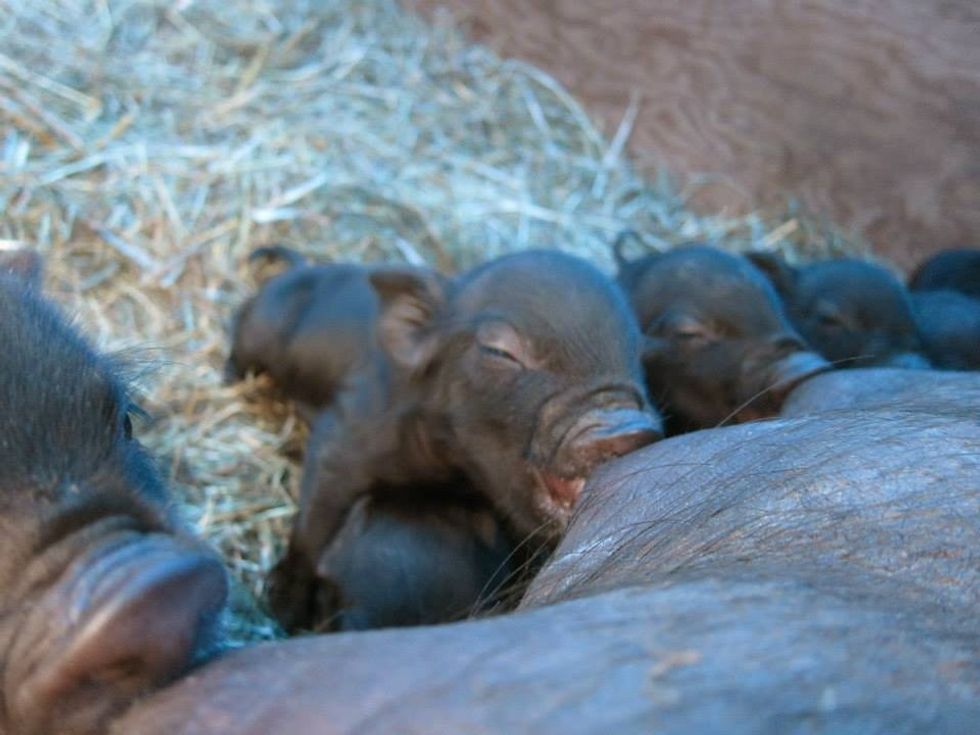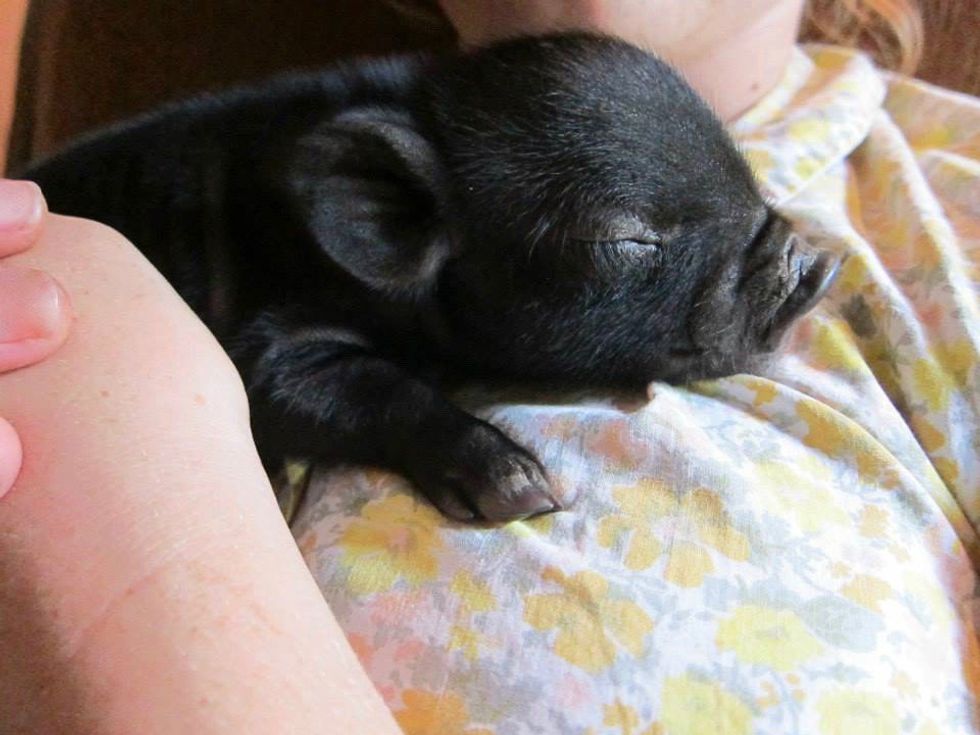In a time when we are bombarded with conflicting dietary suggestions, fleeting diet fads and glossy over-filtered food images and advertisements, it can be difficult to know really what is best when it comes to our diets. There are valid reasons for eating an herbivorous diet--from personal to politics or ethical beliefs, or a desire to become more health conscious. Restaurants and cafés with exclusively veggie-based offerings have become more commonplace in the past several years reflecting the cultural awareness of the potential health benefits and the inhumane treatment of factory-farmed animals. An unfortunate behavior I have seen on various social media outlets and experienced first-hand is a superiority displayed by people who follow vegan or strict “clean eating” diets.
While I commend them for their dedication and self-awareness, I don’t think anyone should be self-righteous about their food habits; it is essential to remember that what works for one person may not work for another--nutritionally, culturally, financially or any other number of reasons.
Vegetarianism, which can incorporate some animal products--like milk, cheese, honey and even fish--or veganism, which is strictly free of all animals products (even including honey, in some cases) can provide all the essential nutrients we as humans need if managed correctly; if not, nutritional deficiencies are inevitable. Let’s look at my parents as an example: when I was born, they were vegans at 22 years old. I was breastfed initially and once I became old enough for solids, I ate pureed kale and homemade carrot juice galore--my cloth diapers were stained orange (sorry for the visual). My parents continued the vegan lifestyle until it was apparent that I wasn’t getting all of the nutrients I needed, so they added fish to our family's diets. Some people are able to meet all of their nutritional needs with plant-based foods and sustain themselves on vegan or vegetarian diets, but it's important to recognize when it may not be working.
I was fortunate to grow up in an area rife with organic farms, pastured meat, dairy and eggs--and with a family who could eventually raise our own chickens and pigs for eggs and meat. My family’s experience has definitely set me up to be conscious about the origin of my food. As a recent college graduate with student loans and too many bills, it can be difficult to find affordable meat and dairy whose suppliers I also feel comfortable supporting, but I take advantage of sales, discount grocery stores (shout-out to Hopey and Co, in the Asheville area), and local farms or farmer’s markets.
In my sophomore year at Warren Wilson College several years ago, I participated in a TEDx event my school hosted (if you are not familiar with the TEDx events, I suggest you check out some videos here) where I embraced the opportunity to discuss the responsibility that comes with eating meat. Why did I choose to participate in the journey of meat production--from raising an animal from birth to finally butchering and processing its meat? Well, I'll tell you:
I was home-schooled, which meant I was able, a few mornings a week at about 6 a.m., to ride my bike the couple of miles up the hills and dirt roads to the dairy farm (where my family bought raw milk and grass-fed beef). The school bus would usually pass me as I rode my bike and I would think about the fact that I got to spend my mornings milking cows, shoveling manure and playing with calves, while the kids on the bus had to be stuck in school all day. Some days I would spend time bottle-feeding a pair of beef calves who would eventually become the meat my family and I, as well as others in the community, would have on our dinner plates.
It was always important to me to think about the animal I was eating--to acknowledge and respect its life, but until I had actually taken the life of an animal, I didn’t realize the intensity and the extent of the power we hold over them. One afternoon, because my dad wasn’t home and my mom didn’t have the strength to do it herself, my mom asked me to kill a particularly disagreeable rooster so we could have meat for dinner. My mom and I stroked and calmed the rooster as we said goodbye. My knees were trembling as I held the ax above the stump where the rooster was lying and I became aware of the power I had over the rooster by holding that ax. I swung the ax and watched as the rooster’s life left him, right before my eyes. In the past, I had questioned my choice to eat meat, but in taking that rooster’s life, with the intention of feeding my family, I felt that I was truly respecting him and that the decision I had made to eat meat was solidified because I was truly acknowledging and accepting the entire moral and emotional conflict.
I will never forget the profound experience of butchering a pig for the first time. We huddled together in our thick hats, Carhartt jackets, and rubber boots, as the snow drifted down from the grey sky and our breath formed clouds in front of us. As the smell of burning sweetgrass and sage filled our nostrils, we said our thanks to the animal before us who was happily eating her last meal. Flora, an American Guinea Hog sow, had a prolapsed intestine and was struggling to live.
Although we were raising pigs with the knowledge that we would eventually butcher them, the decision to kill Flora was very hard to make, as we had been planning to keep her as a pet and breeding sow. It became obvious though, that she wasn’t going to live and rather than let her die naturally, which would have been slow and painful for her, we decided to have some friends with experience butchering pigs come over and help us butcher her.
The smell of the burning sage mixed with the brisk fall air as our friend sharpened the knife and we prepared ourselves to take Flora’s life. In order for Felix, our friend, to have accurate aim at her jugular vein, my dad and I had to hold down Flora, which was an emotional, and slightly traumatic moment for all of us. As the knife cut into her neck, there was a moment of what I would describe as panic amongst us humans. The reality of what we were doing, and the irreversibility of our actions struck all of us heavily.
After we burned off Flora’s hair, we strung her up from a tree and cut into her carcass. The sickeningly sweet smell of urine and stomach juices filled the air. Suddenly, as her insides slid into the waiting bin below, we saw the small, slippery bodies of six tiny piglets, nestled inside her. I felt sick to my stomach. We all wondered if we could have saved them.
Many people rightfully question the sustainability of eating meat. There have been recent developments in the world of genetically modified meats, such as the hamburger grown in a petri dish and Japan’s meat synthesized from protein derived from sewage. Perhaps someday this will be the way in which we get our meat, but for now, with factory farming and disturbing, inhumane slaughterhouse procedures, I believe more people need to learn to raise and butcher their own meat.
As a kid, I would see the cycle of life through hatching chicks and ducklings, through the birth of piglets and rabbits, and finally, its culmination in the process of butchering. The soul-crushing part of being omnivores comes from a distancing of the two acts--ourselves from the death of the animal, and therefore the fact that we are taking a life. To understand the intensity of taking something’s life, I challenge those of you who eat meat to have the experience of deliberately taking an animal’s life to feed your own, or to at least observe the process so that you can make an informed decision as to whether or not you want to eat continue to eat meat.
For some, a plant-based diet may be best, but eating meat is the right choice for me and my body. If I had not been able to have the experience of butchering an animal--participating in each part of the cycle, I would not feel able to eat meat. An understanding of the process is very important and has allowed me to appreciate the value of animals' lives.
We must fight against the spirit of unconscious cruelty with which we treat the animals. Animals suffer as much as we do. True humanity does not allow us to impose such sufferings on them. It is our duty to make the whole world recognize it. Until we extend our circle of compassion to all living things, humanity will not find peace.
-Dr. Albert Schweitzer, 1952 Nobel Peace Prize recipient.






















